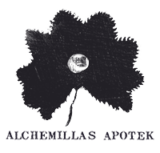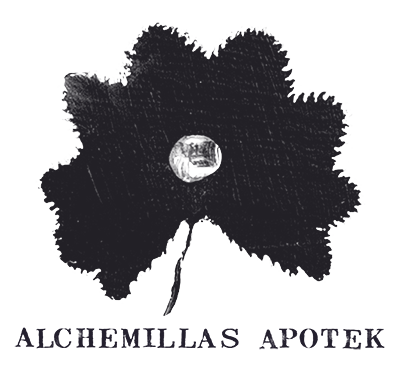Description
Spagyric tincture of Oregano Vulgaris.
Take 7 drops 1-3 times a day when needed, directly on the tongue or in a little warm water or tea.
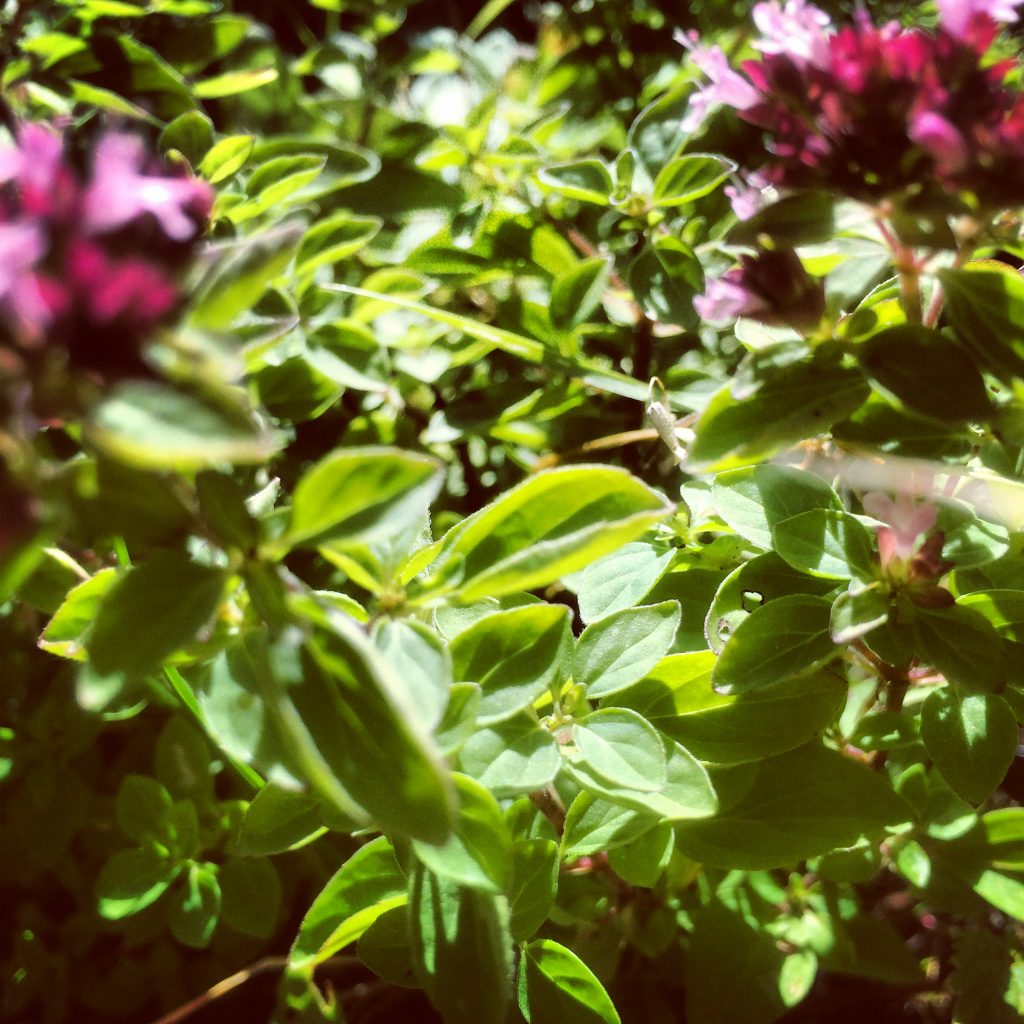
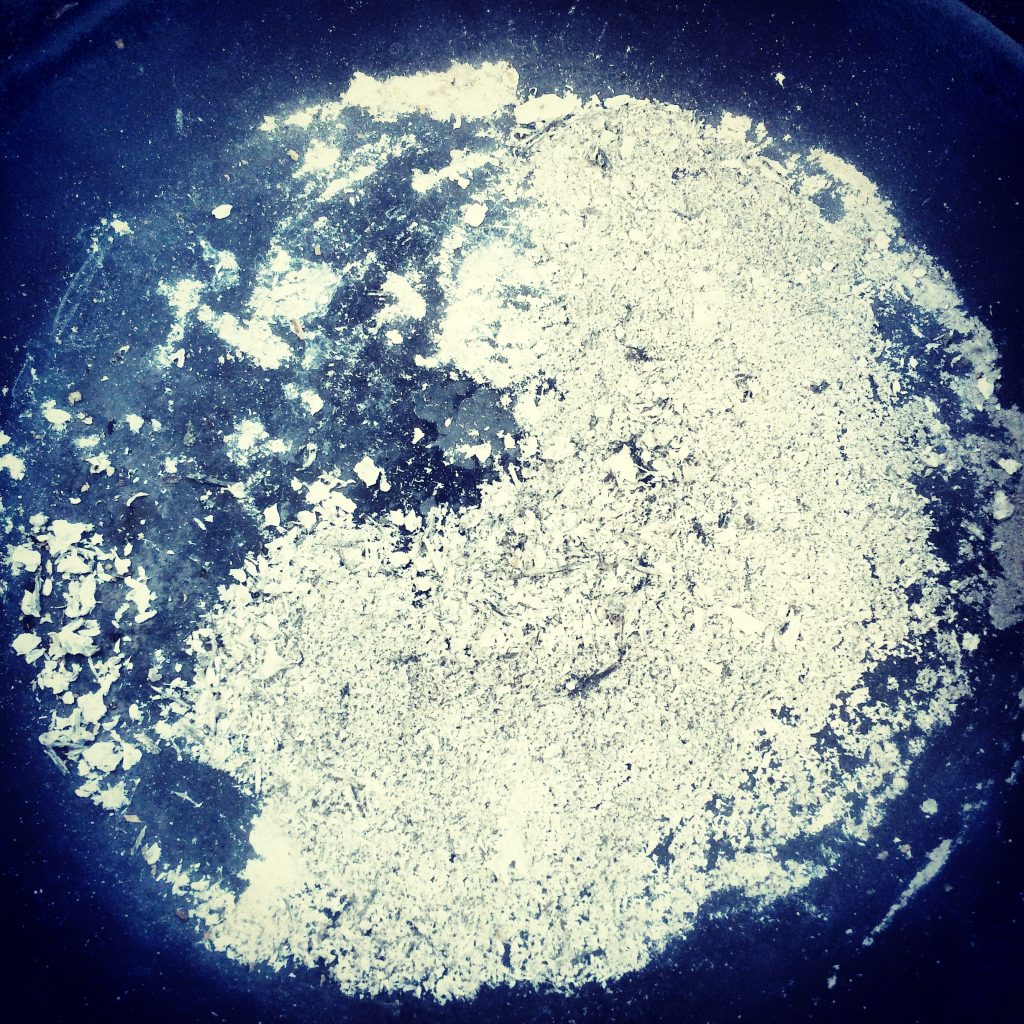
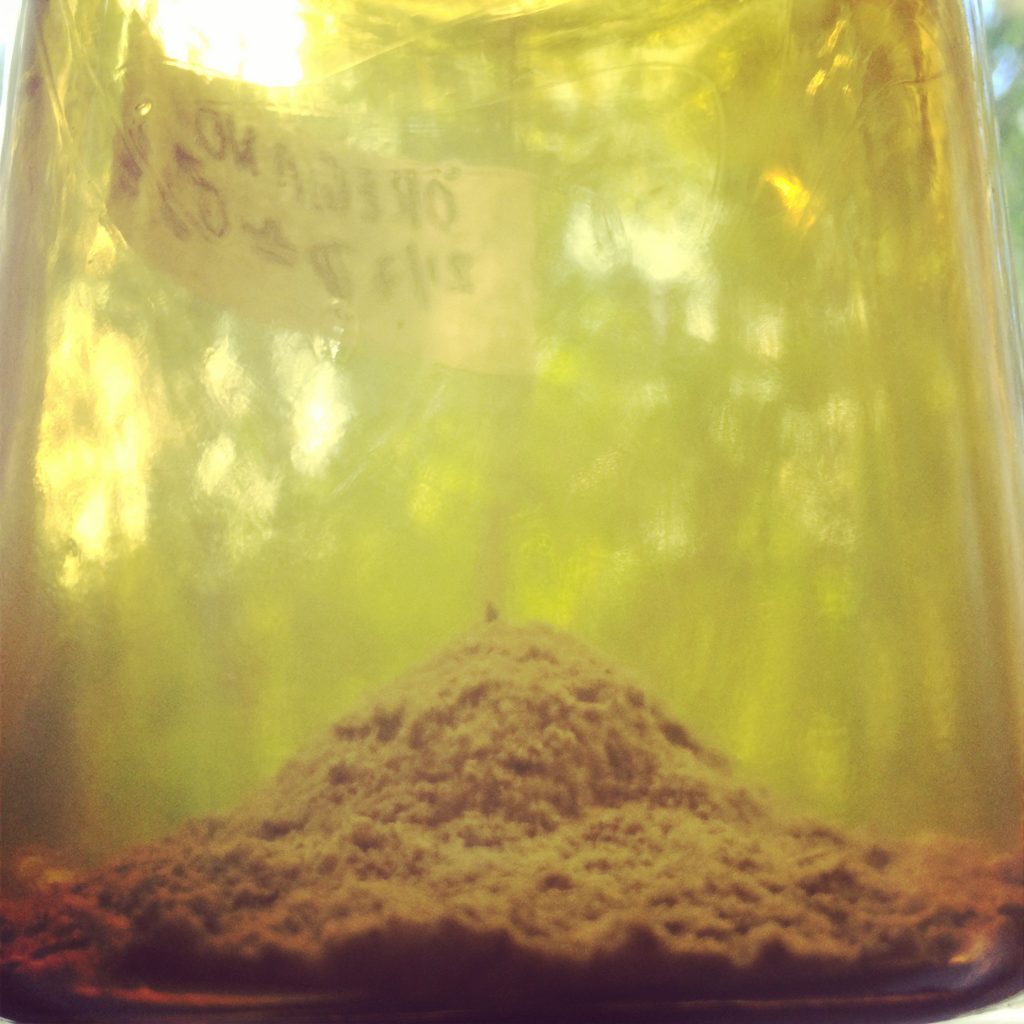
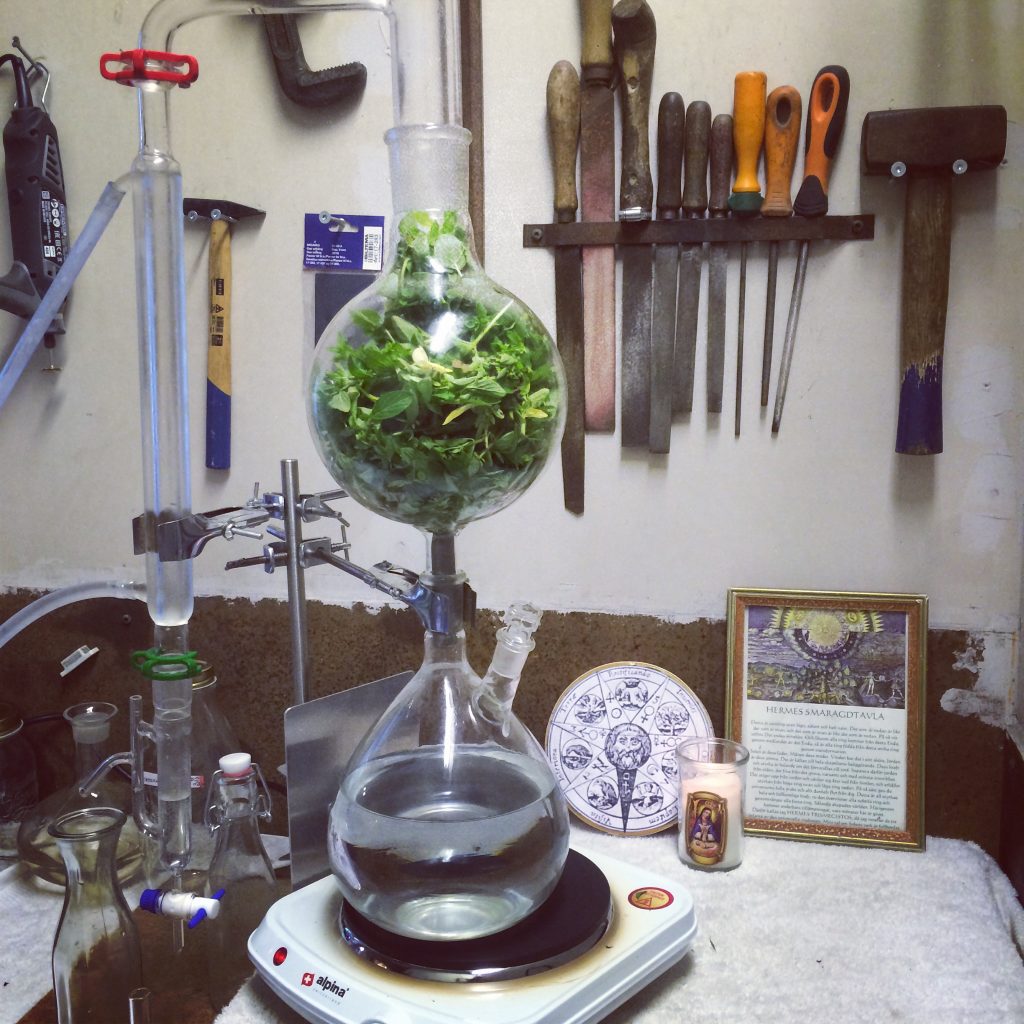
150 kr
The Joyous Mountain. From Greek oreiganon, from oros “mountain” + ganos “brightness”
![]()
Oregano has extraordinarily powerful natural antibiotic qualities. The strong phenol antioxidants destroy pathogenic bacteria, viruses and yeasts.
Oregano is antiseptic, an aid for ear, nose and throat, respiratory infections, candida and any sort of bacterial or viral conditions.
It is a powerful aid when inflammation is around especially colds and flus with chills and shivering as well as respiratory tract infections with profuse mucus and chilliness. Very good at the beginning of measles to lessen the course of the disease.
Oregano also works for the digestion, abdominal swelling and belching.
![]()
It relaxes the mind, balances the emotions and banishes mental fatigue. Oregano is promoting clarity of thought.
![]()
Oregano opens the solar plexus and installs courage and the power to complete a mission. It is good for people who start projects but have trouble finishing them. When the mountain has been climbed, experience the joy of a new perspective.
Take 7 drops 1-3 times a day when needed, directly on the tongue or in a little warm water or tea.




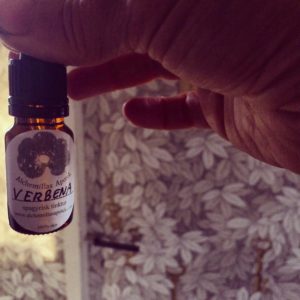
[:en]Sacred herb of the druids.
![]()
Bitter tonic – good for digestion, moving stuck liver energy, nervine – good for burnt-out nervous system, relaxant – especially for tension in the neck, shoulder, head region, very good for painful menses and PMS, also for hot flashes.
![]()
Vervain helps the entrepreneur to unwind and stop working at home. It is indicated for list makers, for people with mental excess as it moves the energy downwards and works as a remedy of embodiment. Vervain people tend to neglect themselves, they forget to eat, drink water, clean the house, exercise etc.
Instead they tunnel vision on their goal and loose sight of other important facets of their life which can fall wayside.
![]()
Indicated for driven visionaries that can burn out from over exhaustion yet be constantly striving. Vervain helps the soul to center and ground its tremendous enthusiasm. The body becomes a natural regulator and harmoniser for the abundant spiritual forces that pour out of such a person, a soul that is able to inspire, lead and heal others.
[:sv]Druidernas heliga ört.
![]()
Järnört är bittert och är bra för matsmältningen, levern, avslappnande för nerverna – särskilt vid utbrändhet, avslappnande för spänningar- särskilt i nacke, skuldror och huvud samt mycket bra vid smärtsam menstruation, PMS och värmevallningar.
![]()
Järnörten hjälper entreprenören att varva ner och sluta arbeta hemma efter arbetsdagen. Den är speciellt bra för folk som skriver listor och för de som har för mycket mental energi då det för energin neråt och gör att man är mer närvarande i sin kropp i stället för bara uppe i huvudet. Järnörts-personer har tendensen att negligera sig själva, glömmer att äta och dricka tillräckligt med vatten, städa sitt hem, träna etcetera. I stället drabbas de av tunnelseende med ett enda mål i sikte medan andra viktiga delar av livet faller i glömska.
![]()
Järnört är bra för drivna visionärer som kan bränna ut sig själva och utmattas av sin konstanta strävan. Järnört centrerar själen och jordar dessa människors enorma entusiasm. Kroppen börjar att balansera sig naturligt och det överflöd av energi som en sådan inspiratör sprider kan kanaliseras och användas för att leda och hela andra.[:]
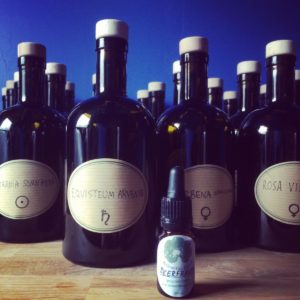
[:en]Horsetail is an important plant teacher for alchemists because it teaches about death, longevity, the quality of life and a long life. It teaches spiritual evolution.
![]()
Horsetail is full of minerals, especially silica which builds hair, skin, nails and connective tissue. The silica is not extracted by ordinary tincturing, but through the calcination process it is extracted spagyrically.
It is diuretic, draining water, working on the kidneys. It is is an astringent tonic which means that it brings tone to relaxed tissues.
![]()
It is helpful for nervous, tense and anxious people who bites on their nails and twirls their hair around a finger. It is grounding. Call on Horsetail to instill courage and strength. When you need to learn how to be firm, set boundaries and limits, learn to do things step by step with discipline.
![]()
Horsetail is a Saturnian remedy. The signature connection between the ringed planet and the ringed stalks.
According to Ayurveda, karma is stored in the bones. Saturnian remedies goes deep into our DNA – the karmic patterns and helps us to break the patterns that are no longer beneficial. Horsetail is a deeply initiatic remedy. It is one of the oldest plants in the world. They used to be as high as trees.
[:sv]Åkerfräken är en viktig växtlärare för alkemister, för dess lära rör döden, odödlighet, livskvalité och evolution.
![]()
Åkerfräken innehåller massor med mineraler, särskilt kisel som bygger upp hår, hud, naglar och bindväv. Kisel som finns i Åkerfräken extraheras genom calcineringsprocesser. Det räcker inte att göra en vanlig tinktur där endast läggs i alkohol. Åkerfräken verkar vätskedrivande och är bra för njurarna. Åkerfräken verkar toniserande, dvs stramar upp förslappade vävnader i kroppen.
![]()
Åkerfräken är bra för spända, nervösa, ångestfulla personer som biter på naglarna och snurrar sitt hår runt fingrarna av nervositet. Åkerfräken är bra om man behöver lära sig att sätta gränser, stå stadigt bakom de beslut man tar och för att utföra uppdrag steg för steg med disciplin.
![]()
Åkerfräken har med saturnus att göra. En av signaturerna är stjälkarna som är ringade i segment. Enligt Ayurveda samlas karma i skelettet. Saturnus medicin går djupt in i vårt DNA, hjälper oss att bryta karmiska mönster som ej längre gagnar oss. Åkerfräken verkar initatioriskt på djupet av varandet. Åkerfräken är en av de äldsta växterna på vår jord. En gång växte de höga som träd.
[:]
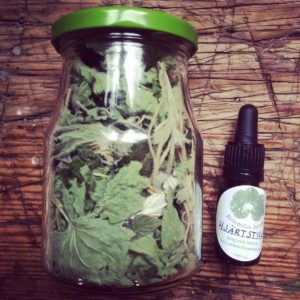
[:en]
“It takes courage to grow up and become who you really are.” – E.E. Cummings
![]()
Motherwort supports the physical and emotional heart, the nervous system and the female urogenital tract. Motherwort brings on delayed menstruation and eases menstrual cramping and pain, PMS and eases childbirth.
![]()
Motherwort is indicated in cases of anxiety that is felt like a tension of the heart or palpitations of the heart.
![]()
Motherwort is a representative of the sacred feminine, the Great Mother. She wants to connect all of us (men, too) to the divine feminine energies. To be brave, to open the heart, to give and receive love.
Motherwort has a lot to do with being courageous and what the essence of motherhood actually is.[:sv]
“Det kräver mod att växa upp att bli den du verkligen är.” – E.E. Cummings
![]()
Hjärtstilla stödjer det fysiska och det emotionella hjärtat, det centrala nervsystemet samt livmodern och de kvinnliga reproduktionsorganen. Hjärtstilla kan få försenad mens att komma igång och lindrar menssmärta, kramp, PMS och förlossningssmärtor.
![]()
Hjärtstilla lindrar ångest som känns i hjärtat och yttrar sig i kramp eller hjärtklappning.
![]()
Hjärtstilla representerar det heligt feminina, Den Stora Modern. Hon vill skapa ett förbund mellan oss alla (även männen) med det heligt femininas energi. Att visa mod, att ha ett öppet hjärta, att kunna ge och ta emot kärlek. Hjärtstilla har mycket med mod att göra och vad moderskapets essens faktiskt handlar om.[:]
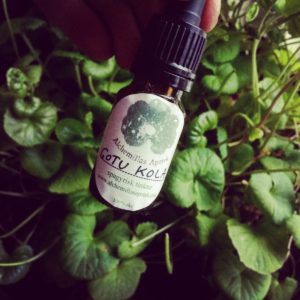
[:en]
“Yoga exists in the world because everything is linked.” – Desikashar
![]()
Gotu Kola is anti-inflammatory and a circulatory stimulant. It is also an excellent connective tissue tonic, aiding with arthritis, ulcers, skin problems, strengthening hair, skin and nails. Connective tissues connect all things in the body – muscles to bones, holding organs in place, and giving the body its mobile structure.
![]()
It is used by many yogis to enter a state of non-dual awareness and deepen their meditation. It promotes a very high level of clarity not of mind, but of awareness of the mind – which in turn clarifies the thought processes. Gotu Kola helps to increase circulation to the brain, balance its hemispheres, improve memory, intelligence, and calms the mind. It is a rejuvenative tonic for the nerves, brain cells, and the adrenal glands.
Gotu Kola is very much connected to the crown chakra. It is an adaptogen and a brain-tonic.
![]()
The connection between the crown and connective tissue is that this herb helps us to understand the unity of all things, how everything in our body is interconnected, and how everything in the universe is interconnected too.[:sv]
Yogins ört
“Yoga existerar i världen , eftersom allt är sammanlänkat.” – Desikashar
![]()
Gotu Kola är antiinflammatoriskt, främjar cirkulationen och är även utmärkt för lederna. Den kan hjälpa vid artros, magsår, hudproblem, stärka hår, hud och naglar.
Bindväven förbinder skelettet till musklerna, håller de inre organen på plats och ger kroppen dess mobila struktur.
![]()
Gotu Kola används av yogis för att träda in i ett odualistiskt medvetande och fördjupad meditation. Den främjar klarhet av medvetandet av sinnet, på en metanivå. Detta påverkar i sin tur klarhet i tankeprocesserna. Gotu Kola ökar cirkulationen till hjärnan, balanserar hjärnhalvorna, förbättrar minnet och de kognitiva förmågorna så som intelligensen och verkar lugnande. Gotu Kola påverkar kronchakrat och är en adaptogen, en så kallad brain-tonic.
![]()
Gotu Kolans samband mellan kronchakrat och kroppens bindvävnader handlar om att denna ört har med alltings enhet att göra, hur allting i våran kropp är sammanbundet och hur allt i vårat universum är sammanlänkat likaså.[:]
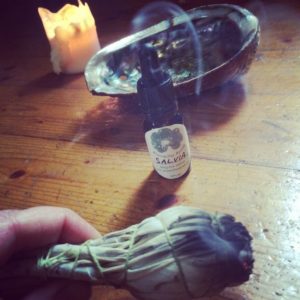
[:en]Sage is for the practicing mystic – I walk my talk
![]()
Sage is used for irritations and inflammations of the throat and respiratory system. Sage has an action on the liver, gallbladder and the digestive system and helps the liver to break down fat. Regulates sweating.
![]()
Purification of the self and purity in communication. Support in delivering our messages. Sage reconnects us to who we are and helps us to recognise wisdom in everything. How each reflection of life is a reflection of our own nature, as we hold the whole universe within our own being.
![]()
Sage helps with integration of the spiritual and the physical worlds together, dissolving the boundary between the mundane and the sacred, helping to bring knowledge into the heart where it can transform into wisdom. Sage is a wise plant teacher of many secrets.
[:sv]Salvia är för den praktiserande mystikern – I walk my talk
![]()
Salvia används vid inflammation och irritation i halsen och luftvägarna. Salvia verkar på levern, gallan och matsmältningen genom att hjälpa levern att bryta ner fett. Salvia hjälper till att reglera svettning.
![]()
Salvia främjar klarhet i kommunikationen. Den stödjer oss att leverera vårat budskap. Salvia hjälper oss att knyta an med vårt sanna jag och att upptäcka visdomen som finns i allt runt om kring oss och uppenbarar att alla reflektioner av livet är reflektioner av oss själva, ty vårat väsen innehåller hela universum.
![]()
Salvia stödjer oss att integrera den andliga och den fysiska verkligheten så den blir till en värld. Den upplöser gränsen mellan det vardagliga och det heliga och stödjer oss att förankra kunskapen i hjärtat där den kan transformeras till visdom. Salvia kan bli en inre lärare.[:]
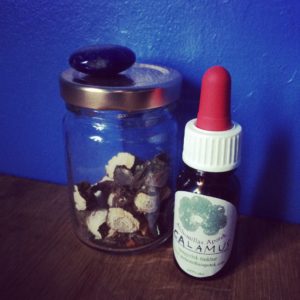
[:en]The power to speak
![]()
Calamus root is aromatic and bitter. It is used for throat colds, sore throats, irritable coughs, laryngitis, chest colds, and head colds. It is considered an effective antihistamine; clearing stuffy sinuses and helping to dispel mucous. It is good when you've lost your voice and for singers or people who work with the voice.
It is also good for libido in both sexes. It also has a reputation in Ayurveda for benefitting conditions in the aging prostate. According to herbalist Henriette Kress “Calamus is astonishing for the pain from endometriosis. One of the few herbs we have for that; cherish it…”
![]()
Calamus also excels as a relaxant, despite its stimulating properties. “Stimulant” and “relaxant” shouldn't be seen a contradictory (uses occupying opposite ends of a polarity): stimulating herbs increase the expression of the vital force, while relaxants ease the resistance to that expression. They work together in a complimentary fashion to achieve the same end: better flow of energy and vitality.
Calamus can be incredibly effective in treating anxiety and is especially helpful in finding one’s voice and expression.
![]()
Calamus promotes circulation to the brain, sharpens memory, enhances awareness, and increases communication. The yogic name, Vacha, means “speech” and refers to its action on the fifth chakra and its propensity to help you speak from your highest consciousness.
Clarity, centering, perspective. Expressing one's truth. This is what the teachings of Calamus is about.[:sv]ABRAKADABRA – jag skapar det jag uttrycker
Ordens magi
![]()
Kalmusroten är aromatisk och bitter. Den används vid halsont, halsfluss, irriterande hosta, förkylning och huvudvärk som liksom känns tjock och svullen. Den används som en effektiv antihistamin, den städar täppta bihålor och för ut slemmet. Kalmus är bra om man tappat rösten och för de som sjunger eller använder rösten på annat vis.
Den är också libidohöjande för båda könen. Inom ayurveda anses kalmusroten förebygga prostatabesvär. Henriette Kress skriver att kalamus är överlägsen vid smärtor av endometrios.
![]()
Kalmusroten är överlägsen både som en avslappnande och stimulerande ört. “Stimulerande” och “avslappnande” bör inte ses som en paradox, det är bara ytterligheterna av en polaritet. Stimulerande örter ökar den vitala kraftens uttryck medan avslappnande örter sänker motståndet av samma kraft. Polariteterna samverkar för samma resultat: Ett bättre flöde av livsenergi och vitalitet. Kalmusroten är otroligt ångestdämpande.
Särskillt värdefull är kalmusroten i att stödja ens uttryck och i att hitta sin egen röst.
![]()
Kalmusroten främjar cirkulationen till hjärnan, är bra för minnet, stärker medvetandet och stödjer förmågan att kommunicera. Det yogiska ordet, Vacha, betyder “tal” och anspelar på femte chakrat och förmågan att tala från ens högsta medvetande.
Klarhet, centrering, perspektiv. Att uttrycka ens sanning. Det är det kalmusrotens medicin handlar om.[:]
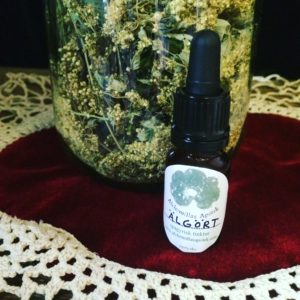
[:en]The aspirin of the druid.
![]()
Meadowsweet is good for ulcers, heart-burn and acid reflux. Meadowsweet is astringent and also anti-acid, as well as offering anti-inflammatory and pain relieving properties.
Meadowsweet contains salicylic acid which makes it a pain reliever, especially suited to stagnant pain (in a fixed location, possibly with a pounding sensation) and for symptoms of heat. Relieves muscular inflammation, headache, joint pain, rheumatic pain, fever, menstrual pain and gout.
![]()
Meadowsweet is a true normalizer of a badly functioning stomach. It regulates acidity and rectifies alkalinity. It calms internal excitation.
I have noticed that it makes you feel happy, so I think it is also calming heated internal states of anger and frustration.
![]()
Meadowsweet was also a sacred herb among the druids and it was a favorite strewing herb in the Middle Ages. They sprinkled it on the floors like aromatherapy.
The smell is almondy and very cheerful. Meadowsweet was the source aspirin came from. It possesses similar properties, but is non-toxic, cooling and soothes the stomach, rather than inflaming and irritating it like aspirin does.
[:sv]Druidernas aspirin.
![]()
Älggräs är bra för magsår, halsbränna, magkatarr och sura uppstötningar. Älggräs är sammandragande och basiskt, och har anti-inflammatoriska och smärtstillande egenskaper. Älggräs innehåller salicylsyra, vilket är smärtstillande, särskilt lämpad för stillastående smärta (på en bestämd plats, eventuellt med en bultande känsla) och symtom som indikerar hetta i systemet. Lindrar muskelinflammation, huvudvärk, ledvärk, reumatisk värk, feber, mensvärk och gikt.
![]()
Älggräs balanserar en dåligt fungerande mage. Den reglerar syrabalansen och är som sagt basisk. Den kyler ner inre hetta. Jag har märkt att man blir
glad av den, därför tror jag att den även lindrar inre hetta i form av ilska.
![]()
Älggräs var också en helig ört bland druider och det var en favoritört att strö på de medeltida golven. Om det var fest ströddes älggräs i festlokalerna som aromaterapi. Lukten är mandelaktig och glädjande. Aspirin är designad efter Älggräsets egenskaper, men man har endast tagit ut en del, salicylsyran. Därför har aspirin bieffekten * att den inflammerar och irriterar magen medan älggräs istället verkar kylande och lugnande för magen därför att salicylsyran är endast en av dess egenskaper som bildar en synergi.[:]
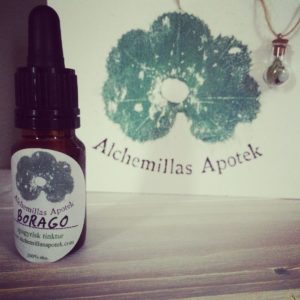
[:en]
![]()
Borage is anti-inflammatory, demulcent, nutritive and cooling. It is giving tone to relaxed tissues like varicose veins. It is also used to soothe the body's mucous membranes. Borage can help ease arthritis and rheumatism.
![]()
Borage can be helpful to uplift and strengthen the spirits, especially in times of grief. It is also a great PMS-relief.
![]()
The blue starlike flowers reach an apex, coming to a singular focused point. Borage is excellent for individuals who are scattered in their communication, lack focus and clarity, and are unable to “get to the point”. It can also be useful for people who tend to “beat around the bush” and are not direct with their communication.
Most confusion that occurs in relationships is due to unclear communication and Borage is an excellent remedy to turn to in order to bring more direct, focused and clear communication that gets to the point.[:sv]
![]()
Gurkört verkar anti-inflammatoriskt, fuktgivande, närande och kylande. Den ger stadga åt förslappade vener och vävnader så som åderbråck. Gurkörten är bra för att lindra inflammation, mjuka upp och återfukta slemhinnor och kan hjälpa vid artros och reumatism.
![]()
Gurkört kan vara behjälplig för att lyfta anden och humöret och kan vara ett stöd vid sorg.
![]()
De blå stjärnlika blommorna bildar med sina fem kronblad en gemensam högsta punkt, ett slags fokus. Gurkört är bra för splittrade individer som kommunicerar på ett splittrat vis. För de som saknar fokus och klarhet eller har svårt att komma till saken. Gurkört kan också vara bra för de som tassar kring den metaforiska heta gröten och liksom aldrig gör slag i saken, eller har svårt att vara tydliga och raka i sin kommunikation.
Förvirring och missförstånd uppstår oftast i relationer på grund av oklar kommunikation. Gurkört ger oss stöd i att kommunicera fokuserat, klart, direkt och rakt på sak.
[:]
